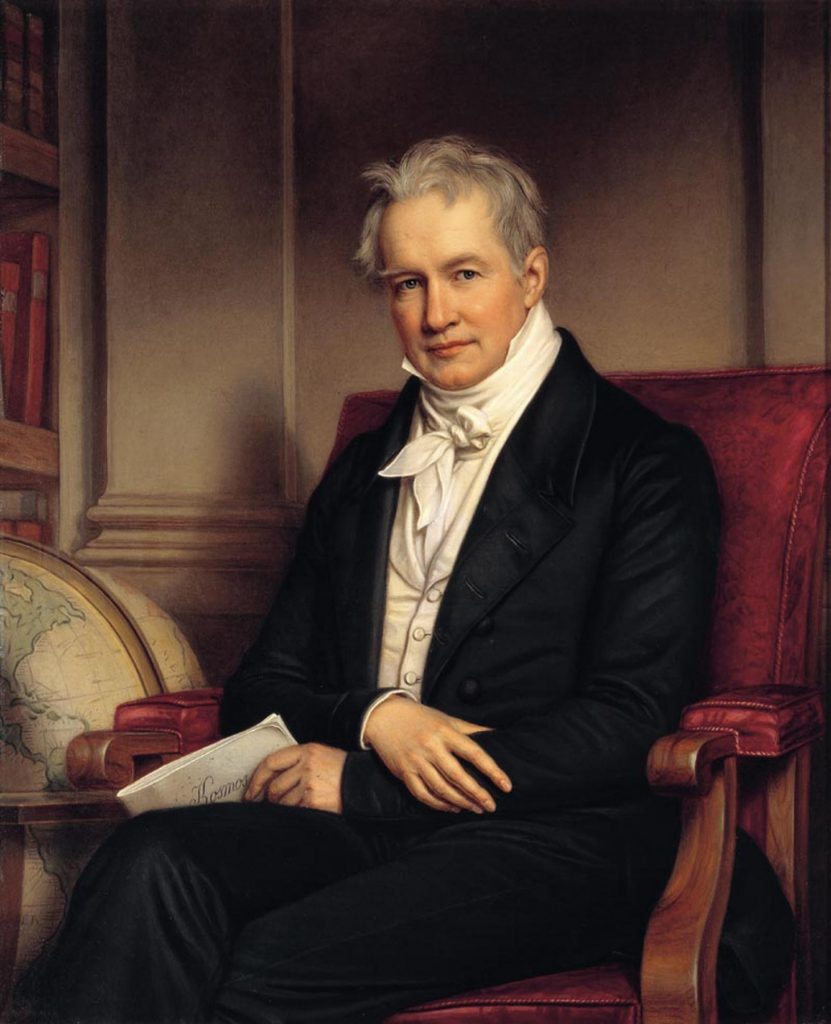The Invention of Nature – Review
 PoachingFacts rating: 4 of 5 stars
PoachingFacts rating: 4 of 5 stars
The Invention of Nature by Andrea Wulf is an examination of Alexander von Humboldt’s (1769 – 1859) public life and his accomplishments on behalf of modern society. A naturalist and geographer, Humboldt enjoyed summiting mountains, understanding the influence of the climate, and was what we might today call a researcher or explorer. He is credited with being among the first to look at the way nature was interconnected, related climate regions across continents, and author Andrea Wulf does an adequate job of explaining his life and the impact he had on the people and scientific institutions during and after his life as well as the way that scientific methods were developed and applied. He was the intellectual sparring partner of Goethe, was disliked by Napoleon, and was described by Thomas Jefferson as “the most important scientist whom I have met.”
The Invention of Nature also details many of the benefits of his work, ranging from improved maps to better understandings of native and colonial settlements in Central and South America. It is important to note that The Invention of Nature is not a biography of the man, but an entertaining examination of his expeditions to Latin America and Russia, visit to the United States, as well as the most interesting aspects of his field research and their over-arching impacts.
This nonfiction book does have a substantial amount of biographical information on Humboldt’s life, but takes a number of long segues to explain historical events that were related to Humboldt’s advancements and individuals that used his works to their advantage, such as revolutionary Simón Bolívar who helped to establish the independence of several South American nations. Not all readers looking to avoid tangential history lessons will appreciate these deviations, but there are numerous interesting scientific and historical facts as well as descriptions of other explorations, the influence on Charles Darwin‘s explorations, and exposure to the scientific world of late 18th and early 19th century Europe which make The Invention of Nature a worthwhile read.
If not with this book, it is still important for westerners to be familiar with Humboldt and his accomplishments that have helped shape the way that many people have come to interpret the natural world. Charles Darwin is a household name in many countries, but even his accomplishments are often glossed over when teaching biology, ecology, and related introductory-level classes. This despite Humboldt being the inspiration of Darwin as well as French botanist Edouard Heckel, American naturalist John Muir, and many others who would advance the way that we study, examine, and describe the world around us.
Readers interested in similar topics of exotic exploration and history will also likely enjoy other books that we have recently reviewed. Elephant Company: The Inspiring Story of an Unlikely Hero and the Animals Who Helped Him Save Lives in World War II describes the life and adventures of James “Elephant Bill” Williams while working in Burma (also called Myanmar) in Southeast Asia. For a more modern adventure, Tim Butcher’s travel-memoir Blood River: A Journey to Africa’s Broken Heart which recounts his journey along the 2,500-kilometer Congo River, following in the footsteps of Henry Morton Stanley‘s first trans-African expedition (1874-1877).
Further Reading:
Alexander von Humboldt is the author of dozens of works in French, many of which are freely available online or have been compiled for publication in a variety of languages including English and German.
In 2016 an electric eel attack was documented for first time since the 1807 publication by Humboldt; read about this research on Mongabay.com.
This and other PoachingFacts reviews are also available on GoodReads.com.

